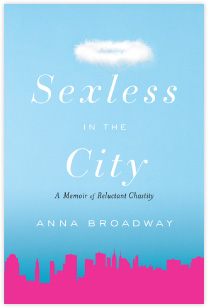Sorry for the delay in bringing installment #10 here, folks! Still wrapping up some final revisions on the book, but hopefully we’ll have no more than 12 total posts in this series, then dive into Sexless 2.0. Hope ya’ll are staying warm out there!
Originally posted May 5, 2005
Recently Girlfriend #3 sent a letter in which she remarked on correspondence from an old crush. Unexpected, thoughtful correspondence, though they are separated by a sizeable ocean. She was surprised and not entirely unmoved. He is, after all, her One — the one who got away, whom no one since has ever quite eclipsed. But with the tough strength of a cynic she dismissed this act of kindness on his part. “I know how he is. He’s probably just jerking my chain.”
My response was fairly restrained, considering how this “promising” letter wound up my inner romantiholic. You see, whether or not she believes, I’d like to think he’s still meant for her, that one day things might work out. Instead I said ignoring his letter might be a little extreme, revealing of still-not-forgotten pain.
But later, recapping Girlfriend’s letter to my roommate, I asked her, “Why do we have this tendency?” It certainly was bigger than just my “problem,” she agreed. Roommate, too, has a One she’s never quite forgotten. And a Deep South girlfriend who’s never even met the lad, just heard Roommate’s views and like for him, concludes that something could still be there. Ours is the sort of advice Blogfather rightly rants against.
So why do we do it? I mean, it’s one thing when you’re the one pining, and friends tell you that … but what’s the motive for stirring up a likely false hope in a friend? Three possible explanations come to mind:
- Bad listener syndrome. This is the friend who never really thinks much about your words, just spits back what you’ve said to them. This person essentially mirrors to you the attitude or stance that you project. If you like some guy, “Yeah, he’s great. He sounds awesome.” But when you sour on him … hello asshole. “Screw him, dude, you’re better than that.” I’ve known people to actually appreciate that in a friendship, but as an overly confident soul myself, such behavior terrifies. I mean, what if I’m wrong?!! If surrounded by only those who know how to tell me what I’ve just said, the sole burden for truth and responsible, wise behavior is on my unsteady shoulders. Painful though their criticism may be, it’s the good-listener friends who lovingly challenge what I say that I appreciate the most.
- Psychotic friend syndrome. Then there’s the person who thrives on other’s pain. A person needy enough to encourage false hope precisely because it’s false — so that, when you need a friend to turn to, someone to help you recover from rejection, this friend can be there to help you cope at every turn. Being nurse to your psychic wounds is the role aspired to, in which he/she feels most valued.
In my case, though, I suspect it’s more the third case:
- Vicarious hope. Something in us prompts a hope, deep down, that all the cheesy love stories show some truth about the world. That people meant to be together really get together. That tragedy, loss and death can be overcome in the last act. Wanting things to work out for friends, whether or not they’re really likely to, is somehow an affirmation of faith in a principle we hope will apply to our lives as well. A hope that somehow, someday, all wrongs will be made right, all mistakes and misunderstandings overcome, and all missed connections made right through a kind of miraculous second chance. It is, in other words, a nearly religious hope about the nature of the world, and the resolution of its fundamental brokenness.
But enough of my thoughts. What’s the reader take on this theory? Don’t forget I still covet your questions for the advice portion of this blog. ;)




<< Home